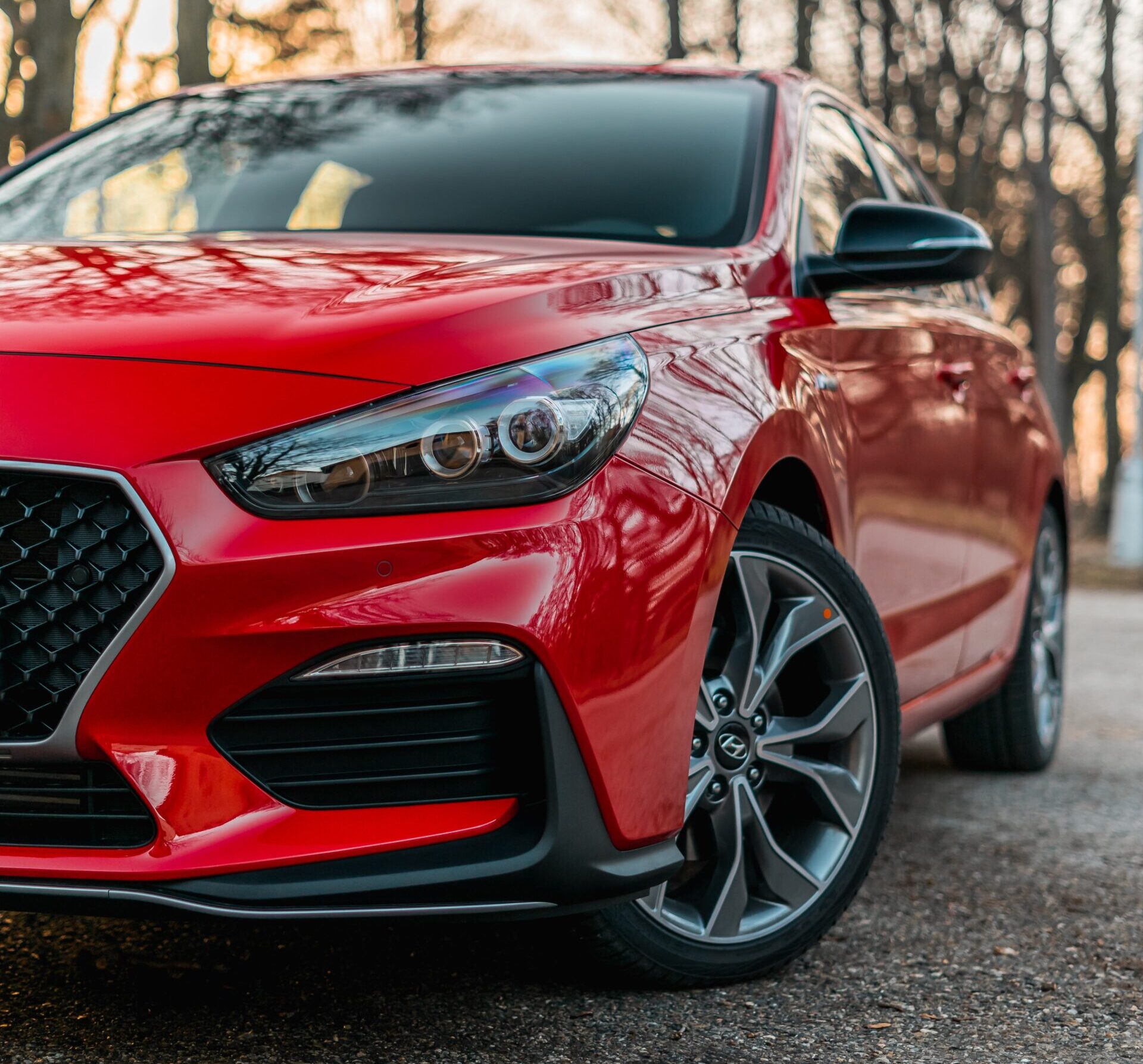Support our educational content for free when you purchase through links on our site. Learn more
Is Leasing a Car Cheaper Than Owning? 7 Key Insights to Help You Decide! 🚗💰
When it comes to getting behind the wheel, the age-old debate of leasing versus buying can feel like a high-stakes game of poker. Are you throwing your money away with a lease, or is buying a car just a long-term commitment that could leave you stranded? 🤔 With so many factors at play, it’s easy to feel overwhelmed. Did you know that nearly 30% of new car buyers choose to lease instead of buy? That’s a significant number, and it raises the question: why?
In this article, we’ll dive deep into the financial implications, pros and cons, and hidden costs of both leasing and owning a car. We’ll share real-life experiences, expert insights, and a handy comparison table to help you make an informed decision. By the end, you’ll have a clearer picture of whether leasing is the right fit for your lifestyle or if buying is the way to go. Buckle up, because we’re about to hit the road to clarity! 🚀
Key Takeaways
- Leasing often means lower monthly payments, making it attractive for those who want a new car without breaking the bank.
- Buying builds equity, allowing you to own your vehicle outright and drive without mileage limits.
- Hidden costs like acquisition fees and wear-and-tear charges can add up in leasing agreements, so be vigilant!
- Consider your lifestyle: If you drive a lot, buying might be more beneficial; if you love new tech, leasing could be your jam.
- Insurance costs can vary, with leased cars often requiring higher coverage levels.
- Long-term savings typically favor buying, especially if you keep the car for several years.
Ready to explore the latest car lease deals or find the perfect vehicle to buy? Check out our Latest Car Lease Deals or dive into Auto Financing Options to get started!
Table of Contents
Quick Tips and Facts
Understanding Car Leasing vs. Ownership
The Financial Breakdown: Leasing vs. Buying
Pros and Cons of Leasing a Car
Pros and Cons of Buying a Car
Hidden Costs: What You Need to Know
Leasing vs. Buying: Which is Better for You?
The Impact of Mileage and Usage
Insurance Considerations: Leasing vs. Owning
Resale Value and Depreciation: The Long Game
Personal Stories: Real Experiences with Leasing and Buying
Quick Comparison Table: Leasing vs. Buying
Conclusion
Recommended Links
FAQ
Reference Links
Quick Tips and Facts
- Leasing often means lower monthly payments: You’re essentially paying for a car’s depreciation during your lease, not its full value.
- Buying builds equity: Every payment chips away at your loan, eventually giving you a car you can sell or trade-in.
- Mileage matters: Leases come with mileage limits, so if you’re a road tripper, factor in potential overage fees.
- Think about your lifestyle: Do you crave the newest tech and car smell every few years? Leasing might be your jam.
- Crunch the numbers: Don’t just focus on the monthly payment. Consider insurance, maintenance, and potential fees.
Understanding Car Leasing vs. Ownership
Alright, let’s break down this age-old debate: is leasing a car actually cheaper than owning? 🤔 We here at Car Leases™ live and breathe this stuff, and the answer, like a lot of things in life, is: it depends!
Think of it like this: leasing is like renting a swanky apartment, while buying is like taking the plunge into homeownership. Both have their perks and quirks.
When you lease, you’re essentially paying for the right to use a car for a set period, typically 2-4 years. You get that new-car smell, the latest gadgets, and predictable monthly payments. But, you also have mileage limits and potential fees for going over or excessive wear and tear.
Buying, on the other hand, means you’re in it for the long haul. You’ll likely have a larger down payment and monthly payments, but you’re building equity and have the freedom to drive as much as you want (open road, here we come! 🚗💨).
The Financial Breakdown: Leasing vs. Buying
Let’s talk numbers! 💰 The biggest factor in the leasing vs. buying equation is usually the monthly payment.
- Leasing: Monthly payments are often lower because you’re only paying for the car’s depreciation during your lease term, plus interest and fees.
- Buying: Monthly payments are typically higher because you’re paying off the entire cost of the car, plus interest.
But hold your horses! Don’t let that lower lease payment seduce you just yet. Remember those hidden costs we mentioned? We’ll dive into those later, but for now, just know that they can add up.
Pros and Cons of Leasing a Car
Pros:
- Lower Monthly Payments: This is often the biggest draw for lessees. You can drive a nicer car for less money each month compared to buying.
- New Car Every Few Years: Love that new car smell? Leasing lets you drive a brand-new car every few years, complete with the latest tech and safety features.
- Manufacturer Warranty Coverage: Most new car warranties will cover you for the duration of your lease, meaning fewer out-of-pocket expenses for repairs.
Cons:
- Mileage Limits: Leases come with strict mileage limits, typically 10,000-15,000 miles per year. Go over, and you’ll be hit with hefty fees.
- Wear and Tear Charges: Returned your leased car with a few too many dings and scratches? Be prepared to pay up.
- No Equity: At the end of your lease, you don’t own the car. You either have to start the leasing process all over again or buy the car outright (often at a price higher than its market value).
Pros and Cons of Buying a Car
Pros:
- Ownership: You own the car, free and clear (once the loan is paid off, of course!). You can drive it as much as you want, customize it to your heart’s content, and sell it or trade it in whenever you please.
- No Mileage Limits: Road trip enthusiast? No problem! Drive as many miles as your heart desires without worrying about overage fees.
- Potential for Appreciation: While most cars depreciate in value, some classic or rare models can actually appreciate over time, turning your car into an investment.
Cons:
- Higher Upfront Costs: Be prepared for a larger down payment and potentially higher monthly payments compared to leasing.
- Depreciation: Cars lose value over time, especially in the first few years. This means you could owe more on your loan than the car is worth if you need to sell it early.
- Maintenance Costs: You’re responsible for all maintenance and repair costs, which can add up over time, especially as the car ages.
Hidden Costs: What You Need to Know
Ah, the dreaded hidden costs! They’re like that unexpected guest who shows up unannounced and eats all your snacks. 👿 Here are a few to watch out for:
- Acquisition Fee: This is a fee charged by the leasing company for, well, acquiring the car for you. It’s usually a few hundred dollars and is often due at signing.
- Disposition Fee: This fee covers the cost of cleaning and preparing the car for sale after you return it at the end of your lease. It’s typically a few hundred dollars and is usually due when you return the car.
- Excess Wear and Tear: We’ve all been there – a scratch here, a dent there. But on a leased car, those imperfections can cost you. Be prepared to pay for any damage beyond normal wear and tear when you return the car.
- Early Termination Fees: Need to get out of your lease early? Be prepared to pay a hefty fee, sometimes thousands of dollars, depending on how much time is left on your lease.
Leasing vs. Buying: Which is Better for You?
The million-dollar question (sometimes literally, depending on the car! 😅). Unfortunately, there’s no one-size-fits-all answer. The best choice for you depends on your individual needs and circumstances.
Consider leasing if you:
- Want lower monthly payments.
- Like driving a new car every few years.
- Don’t drive a lot of miles.
- Prefer predictable car expenses.
Consider buying if you:
- Want to own your car outright.
- Plan to keep your car for a long time.
- Drive a lot of miles.
- Don’t mind handling car maintenance and repairs.
The Impact of Mileage and Usage
We can’t overstate this enough: mileage is a HUGE factor in the leasing vs. buying decision.
- Leasing: If you’re a frequent flyer or city dweller who rarely ventures beyond the grocery store, leasing might be a good fit. But if you’re a road trip warrior or have a long commute, those mileage overage fees can add up quickly.
- Buying: Buying gives you the freedom to drive without watching the odometer like a hawk. Go ahead, plan that cross-country road trip! Just be aware that higher mileage can lower your car’s resale value down the line.
Insurance Considerations: Leasing vs. Owning
Here’s a curveball: insurance can be more expensive for leased cars.
- Leasing: Leasing companies often require you to carry higher levels of insurance coverage, which can increase your monthly premiums.
- Buying: You have more flexibility with insurance coverage when you own your car, but it’s still crucial to have adequate coverage to protect your investment.
Resale Value and Depreciation: The Long Game
Depreciation is the elephant in the room when it comes to car ownership.
- Leasing: You don’t have to worry about depreciation as much when you lease because you’re only paying for a portion of it. However, if you decide to buy the car at the end of your lease, you’ll be paying the residual value, which might be higher than the car’s actual market value.
- Buying: Depreciation is a fact of life for car owners. Cars lose value over time, especially in the first few years. However, if you keep your car for a long time, the depreciation curve flattens out, and you’ll likely get more value out of your investment.
Personal Stories: Real Experiences with Leasing and Buying
We asked around the office, and here’s what some of our Car Leases™ team members had to say about their own leasing and buying experiences:
- Sarah, Leasing Fan: “I love leasing! I get a new car every three years with the latest features, and I don’t have to worry about maintenance or repairs.”
- John, Buying Advocate: “I’m a buy-and-hold kind of guy. I like the freedom of owning my car and not having mileage limits. Plus, I enjoy working on my car and keeping it in tip-top shape.”
- Maria, On the Fence: “I’ve done both leasing and buying, and they both have their pros and cons. I think it really depends on your individual needs and lifestyle.”
Quick Comparison Table: Leasing vs. Buying
| Feature | Leasing | Buying |
|---|---|---|
| Monthly Payments | Lower | Higher |
| Down Payment | Lower | Higher |
| Mileage Limits | Yes | No |
| Wear and Tear Charges | Yes | No |
| Equity | No | Yes |
| Ownership | No | Yes |
| Flexibility | Less | More |
| Insurance Costs | Potentially higher | Potentially lower |
| Depreciation | Less of a concern | More of a concern |
Conclusion

So, is leasing a car cheaper than owning one? The answer isn’t black and white. It really boils down to your personal preferences, driving habits, and financial situation. Leasing offers lower monthly payments, access to new cars every few years, and fewer maintenance worries. However, it also comes with mileage restrictions and no equity. On the flip side, buying a car means ownership, no mileage limits, and the potential for long-term savings, but it requires a larger upfront investment and comes with the burden of depreciation.
Ultimately, if you love the idea of driving the latest models and don’t mind the restrictions, leasing could be your best bet. But if you’re looking for long-term value and the freedom to drive as much as you want, buying might be the way to go. Whatever you choose, make sure to crunch the numbers and consider all the factors we discussed. Happy driving! 🚗✨
Recommended Links
- 👉 Shop Latest Car Lease Deals: Latest Car Lease Deals
- Explore Car Lease Basics: Car Lease Basics
- Check Out Electric Vehicle Leases: Electric Vehicle Leases
- Understand Credit Score and Car Leasing: Credit Score and Car Leasing
- Learn About Auto Financing Options: Auto Financing Options
FAQ

What are the pros and cons of leasing a car compared to buying one?
Pros of Leasing:
- Lower Monthly Payments: Typically lower than buying.
- Newer Models: Access to the latest technology and features.
- Warranty Coverage: Often covered by the manufacturer’s warranty.
Cons of Leasing:
- Mileage Limits: Restrictions on how much you can drive.
- No Ownership: You don’t build equity in the vehicle.
- Potential Fees: Charges for excess wear and tear or mileage.
Pros of Buying:
- Ownership: You own the car outright after the loan is paid off.
- No Mileage Limits: Drive as much as you want without penalties.
- Customization Freedom: Modify the car as you please.
Cons of Buying:
- Higher Monthly Payments: Typically more expensive than leasing.
- Depreciation: The car loses value over time.
- Maintenance Costs: Responsible for all repairs after the warranty expires.
Read more about “Can You Negotiate Lease Price with Tesla? 7 Insider Tips to Maximize Your Deal! 🚗✨”
How do car lease payments compare to car loan payments over time?
Car lease payments are generally lower than car loan payments because you’re only paying for the vehicle’s depreciation during the lease term, plus interest and fees. In contrast, loan payments cover the full purchase price of the car, leading to higher monthly costs. However, while leasing may be cheaper in the short term, buying can be more economical in the long run, especially if you keep the car for several years after paying off the loan.
Are there any long-term savings to leasing a car instead of owning one?
While leasing can provide short-term savings through lower monthly payments and maintenance costs, it typically does not result in long-term savings. After several years of leasing, you will have paid for multiple vehicles without ever owning one. In contrast, buying a car allows you to build equity and potentially save money in the long run, especially if you keep the vehicle for many years after it’s paid off.
Can you negotiate the price of a leased car like you would when buying a vehicle?
Absolutely! You can negotiate the price of a leased car just like you would with a purchase. The key factors to negotiate include the capitalized cost (the price of the car), the residual value (the car’s estimated value at the end of the lease), and the money factor (the interest rate). Doing your research and being informed about current market values can help you secure a better deal.
Reference Links
- NerdWallet: Leasing vs. Buying a Car
- Consumer Reports: Leasing vs. Buying a New Car
- Investopedia: When Leasing a Car is Better than Buying
- Edmunds: Car Leasing 101
- TrueCar: Car Buying and Leasing
By considering all these factors and doing your homework, you can make an informed decision that suits your lifestyle and budget. Happy car hunting! 🚘✨



